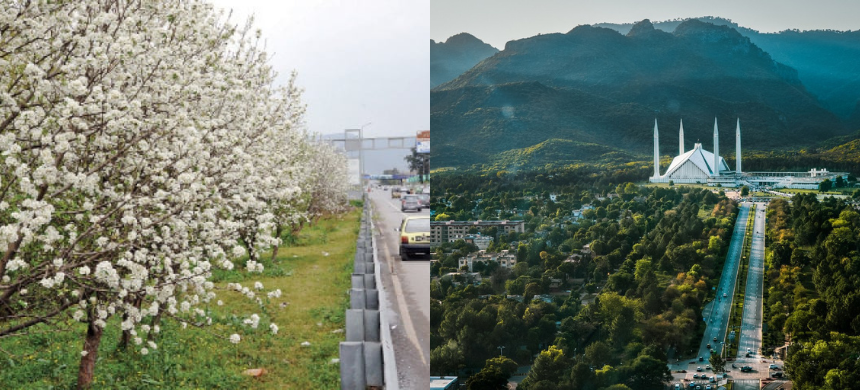NA Committee Criticizes CDA Over Use of Artificial Flowers, Margalla Hills Mismanagement, and Poor Climate Planning
ISLAMABAD – The National Assembly Standing Committee on Climate Change has expressed strong concerns over the Capital Development Authority’s (CDA) use of artificial paper flowers at international events, criticizing it as a sign of poor planning despite the city’s vast nursery resources.
Chairperson Munaza Hassan highlighted the issue, stating that a city like Islamabad—with nurseries spanning over two square areas—should be adorned with real blooming flowers instead of synthetic alternatives. CDA officials responded by blaming seasonal flower limitations but noted that over 200,000 flowers were planted this spring under the Prime Minister’s re-greening initiative.
Concerns Over Margalla Hills Restaurants and Sewage Management
The committee also raised serious environmental concerns about the Margalla Hills National Park, particularly the operation of 68 restaurants, several of which lack proper sewage systems. Chairperson Hassan criticized the CDA and the Islamabad Wildlife Management Board (IWMB) for failing to take accountability, as both departments pointed fingers at each other regarding waste management oversight.
Read More: CDA Introduces Cashless Digital Payment System in Islamabad
One restaurant has been shut down so far, but the majority remain functional. The committee demanded a detailed report on sewage systems in the park and urged that eateries operating without proper waste disposal facilities be closed immediately.
Lack of Climate Preparedness and Hailstorm Response
Recent weather events, including a hailstorm in Islamabad, were also reviewed. Members like Shagufta Jumani pointed out the absence of early warnings and stressed the importance of proactive climate preparedness. The Ministry of Climate Change assured the committee that it would coordinate with the National Disaster Management Authority (NDMA) to provide a detailed briefing in the next session.
Member Shaista Pervaiz emphasized the need for public awareness campaigns to help citizens understand climate change effects and emergency responses in simple language.
Electronic Waste and Environmental Legislation Under Scrutiny
The committee discussed the Pakistan Environmental Protection Amendment Bill 2025, with a special focus on managing electronic waste (e-waste). Member Shahida Rehmani expressed concern over the lack of regulation for battery disposal and other hazardous materials. Ministry officials clarified that only specific metals within e-waste are currently classified as dangerous. The committee has called for expert input on the subject in its next meeting.
Islamabad’s Waste Management Crisis
Waste management in the capital emerged as another pressing issue. CDA officials revealed that Islamabad produces around 650 metric tons of solid waste daily, yet there is no designated disposal site within the city. Temporary dumping is being carried out in Rawalpindi, while two disposal sites are under development in I-9 and Hummak.
The situation is equally dire for hospital waste, with the Environmental Protection Agency (EPA) reporting that only eight hospitals out of many operate incinerators despite 150 tons of medical waste being produced each month.
Delays in Environmental Governance and Wildlife Protection
The committee voiced frustration over slow progress in establishing effective climate governance structures, including the finalization of the Islamabad Wildlife Management Board and unresolved boundaries of the Margalla Hills National Park. CDA officials assured the committee that a joint boundary survey with the Survey of Pakistan would be completed in the coming weeks.
The panel urged immediate appointment of civil society members to the Wildlife Board and demanded improved transparency, inter-agency coordination, and timely action on environmental issues.











